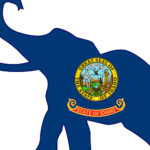Like many government unions, the Powers Education Association (PEA) had a long history of disappointing the employees it was supposed to represent. The teachers of Powers School District No. 31 were fed up with the Oregon Education Association and National Education Association affiliate, which failed to represent their interests and used teachers’ dues to fund divisive political action. The PEA even went to bat for a teacher under investigation for sexual abuse of a student.
Over the summer and with assistance from the Freedom Foundation, the Powers teachers successfully ousted PEA and replaced it with the Cruiser Educators Association, a new, independent, local union that is operated by the teachers themselves.
The effort began in late 2024, when the Powers teachers approached the Freedom Foundation for assistance with leaving PEA and setting up their own independent, local union to replace it. In Oregon—as in many other states—state law makes it relatively simple for a union to gain recognition in a workplace the first time around. Once certified, a union holds significant sway over employees, their pay, and working conditions—indefinitely. Once representation is established, however, removing or replacing an incumbent union requires employees to go through a state-run administrative process that can be difficult to navigate without guidance.
Most teachers’ unions in Oregon, and across the nation were organized during the 1960s through the 1980s. That means most teachers today are represented by unions that have operated largely without challenge for 40, 50, even 60 years, collecting dues from multiple generations of teachers with little accountability for their performance.
Fortunately, state law does provide a way to seek new representation or eliminate a union altogether. While the exact procedures vary from state to state, in Oregon at least 30 percent of the employees in a bargaining unit must sign a petition during a defined 30-day “window period.” Once that threshold is met, the Employment Relations Board (ERB) schedules an election, and employees are given the opportunity to vote on whether to keep, change, or get rid of their union.
Because the process is overseen by a state agency and often opposed by the incumbent union, it can be a little daunting for employees without legal training. The group in Powers faced a different issue. After the teachers submitted their petition for representation, the PEA and OEA didn’t bother to respond to their members or to the ERB for weeks. The Board had to delay holding the representation election by three weeks while it established contact with PEA. When PEA realized what it was up against, it disclaimed interest in continuing to represent the Powers teachers, leaving the Cruiser Educators Association as the only union on the ballot.
Every teacher who participated in the election conducted by the Oregon Employment Relations Board voted for the new organization.
“We just wanted a union that put our students and our community first,” said Gabe Shorb, now president of the Cruiser Educators Association. “With the Freedom Foundation’s help, we built exactly that. No politics, no top-down bureaucracy. Just real, local representation by teachers for teachers to better serve students.” The new Cruiser Educators Association promises to deliver stronger, more responsive representation for teachers—without charging dues. By contrast, the teachers paid $1,100 per year to their former OEA/NEA-affiliated union.
The Powers example highlights a broader truth: many states would benefit from policy reforms that give public employees greater control over their workplace representation. But even absent such reforms, even public employees in liberal states like Oregon can pursue a pathway to independence from an unwanted union.
The Freedom Foundation continues to provide public employees with the expertise and resources they need to successfully navigate the process of changing or decertifying a union and is actively working with employee groups around the country to replace entrenched, unaccountable unions with independent, locally run associations.









